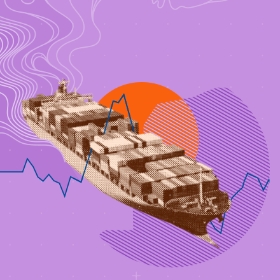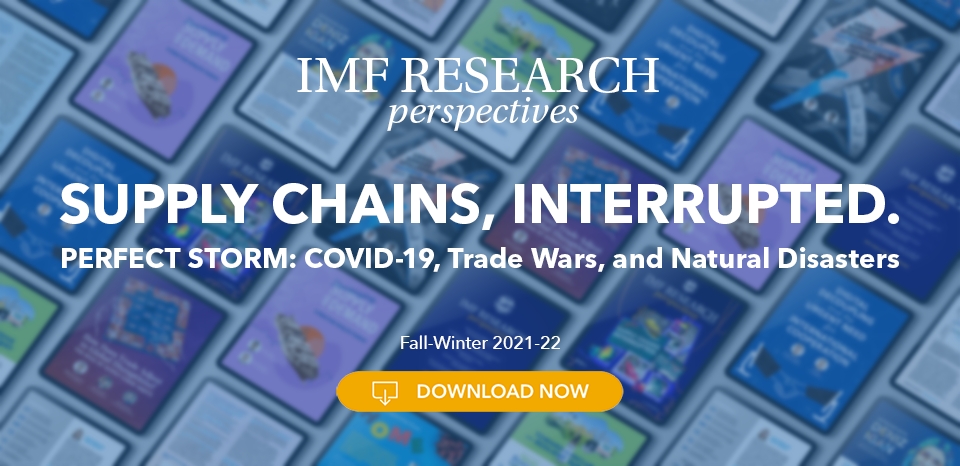|
|

|
INTERVIEW WITH DENIZ IGAN
Deniz Igan, a former co-editor of IMF Research Perspectives and a former head of the Systemic Issues Division in the Research Department, recently stepped into her new role as a head of Macroeconomic Analysis at the Bank for International Settlements. We asked Deniz about her new role, how the idea of IMF Research Perspectives came about, and how she got interested in understanding the political economy of climate legislation.
|
| |

|
DISENTANGLING SUPPLY AND DEMAND IN GLOBAL TRADE DURING THE PANDEMIC
Diego Cerdeiro and Andras Komaromi
As international trade came to a halt following the first wave of lockdowns around the globe, many questioned the viability of global supply chains. Whereas trade rebounded quickly, we were left with many unanswered questions. Using a novel high-frequency dataset built from radio signals of cargo ships, we investigate whether the unprecedented drop and subsequent recovery in global trade were driven by supply or demand forces and how spillovers from lockdowns transmitted through global supply chains.
|
| |

|
DIGITAL DECOUPLING AND THE URGENT NEED FOR INTERNATIONAL COOPERATION
Daniel Garcia-Macia and Rishi Goyal
The COVID-19 pandemic has accelerated the shift toward digital services. Meanwhile, the race for technological and economic leadership has heated up, with risks of decoupling that could set back trade and growth and hinder the recovery from the worst global recession since the Great Depression. We study the conditions under which a country may seek to erect barriers to trade in cyber technologies and in effect promote decoupling or deglobalization.
|

|
CROSS-BORDER SPILLOVERS OF NATURAL DISASTERS THROUGH SUPPLY CHAIN LINKAGES
Alan Feng and Haishi “Harry” Li
Are assets in a landlocked country shielded from the risk of sea-level rise? How do spillovers from climate disasters propagate through global supply chains? These questions are ever more urgent as climate-related disasters are set to rise in frequency and intensity. We study how exposures to foreign climatic disasters in major trade partner countries and, more broadly, long-term climate change risks affect the domestic stock market valuations.
|

|
HOW DOES TRADE ADJUST TO GLOBAL DISRUPTIONS? THE ROLE OF SUPPLY CHAIN HABITS
Mariarosaria Comunale, Justas Dainauskas, and Povilas Lastauskas
We are yet to see a wave of re-shoring and deglobalization in response to the COVID-19 shocks, feared by many in the beginning of the COVID-19 pandemic. So, why did trade and global supply chains prove to be resilient to yet another major global shock? We propose a novel methodology to understand this excess trade persistence puzzle.
|

|
TOWARD AN INCLUSIVE AND RESILIENT RECOVERY
Joannes Mongardini
The IMF Research Department held the 22nd Jacques Polak Annual Research Conference on November 4–5, 2021. Pierre-Olivier Gourinchas, who recently became the new IMF Economic Counsellor and head of the Research Department, delivered the Mundell-Fleming Lecture. Joannes Mongardini gives us an overview of the lecture and other conference sessions.
|
|
|
|
|

|



 resbulletin@IMF.org resbulletin@IMF.org
|
|
IMF | Research Prespectives
|
|
 |
